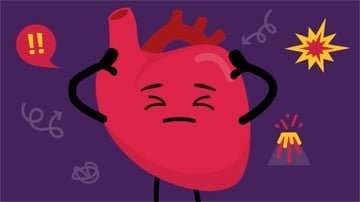
While performing yoga poses, count your breaths. This is a good way to relax your mind. Bound angle pose can be a great yoga pose for anxiety. To relax your body and mind, you can breathe deeply. If you wish to calm your mind, the Bridge Pose can be used. Counting your breaths can help you remain calm and prevent panic attacks. This method may prove to be helpful.
Salute Up
Upward Salute may be able to help you with anxiety. This position allows for energy to flow freely and can relieve anxiety and stress. It is similar the Urdhva Hastasana-handstand pose. The practitioner can feel an external rotation in his legs. It can also improve back flexibility and reduce stress. Here are more benefits to Upward Salute. They include: * It is a wonderful exercise for beginners.
Extended Triangle Pose
Known as the "extended triangle" pose, this full-body stretch is ideal for anxiety relief. This standing pose is just one of several yoga poses that are good for anxiety. This pose can help relieve tension and improve digestion. This pose can reduce your chances of developing osteoporosis. It also tones the abdominal muscles which are essential for losing body fat. You will need to stand with your feet together, and then turn your right leg and foot out 90 degrees. You can complete the pose by holding your right foot and leg while pointing your head upwards.
Child's Pose

It is possible to manage anxiety with yoga poses. This balancing position encourages deep diaphragmatic and long exhalations. Child's pose can be difficult for adults and help you feel less anxious. Cognitive therapists will recommend the Child's pose to clients. It helps to calm your mind and body by encouraging you to be mindful of your thoughts.
Bridge Pose
Anxiety can be alleviated by a variety of yoga postures. Bridge Pose is one such pose. This pose is great for relaxing the entire body, relieving stress, and even mild depression. This pose targets the back, hamstrings and glutes as well as the ankles. While it may not seem like it's very effective for anxiety, it's actually a very good yoga pose for anxiety.
Fish Pose
Fish Pose can help with anxiety and stress because it has a soothing effect on the chest, back, and chest. This powerful yoga pose works the trapezius and abdominal muscles to release tension and tightness. This pose can be done anywhere, anytime. This pose can be used to reduce anxiety and fatigue. These are just a few of the many benefits that Fish Pose can bring to your life. You should try them! How does it work?
Eagle Pose
Yoga poses for anxiety, when used together with other relaxation techniques can help you relax. Eagle Pose can strengthen your upper body, and help you to develop body awareness. It opens your chest, and draws your belly inward and outward. It is easy to do anywhere, any time. Begin by placing your left arm over your right and bending your elbows 90°. After you are done, lift your arms and legs off your body.
Headstand Pose

Headstand is a great yoga pose. For one, it increases blood flow to the brain and is an excellent start to inversions. The stability and centering of the upper body means that you won't be prone to falling, unlike a couch or chair. You can learn how to do the pose safely from a certified yoga teacher. Before you attempt this pose, consult your doctor if you are prone to anxiety or panic attacks.
FAQ
Why is students' mental health important?
Students must be healthy mentally to be able both to concentrate on school and to do well academically. Without feeling like yourself, you will not be able perform well at school. Students who suffer from depression often miss class, which leads to poor grades. This could result in students dropping out high school and possibly even college.
Talk to your family and teachers if depression is a problem. They can help get you the care you deserve.
It is important that you remember that not everyone suffering from depression needs medication. Talk therapy is very effective for many people. If you are interested in getting help, you should see a counselor.
What are some signs of mental-emotional difficulties?
Any condition that causes serious distress or impairment of functioning is known as mental disorders. Anxiety, depression, schizophrenia, borderline personality disorder and obsessive compulsive disorder are all examples of mental disorders.
What causes mental health problems in adolescents?
Adolescence can be a time in our lives when we are beginning to define ourselves. We begin to figure out who we are as individuals and where we fit into society.
It is also a time where we can make new friendships as well as romantic relationships. These experiences can lead to stress.
Stress is normal. But if stress becomes more severe than usual, you should seek medical help.
You might think you can handle things independently, but sometimes, you need someone else to talk to.
During times when you are stressed, your friends and family can help. They can also teach you ways to manage stress.
You could try meditation or exercise. Both can reduce stress.
A group, such as a church or sports team, is another option. You'll meet new people, make new friends.
What do psychologists say about mental health?
Psychologists believe that mental wellbeing is essential for human development. Psychologists also believe mental health is about more than having no mental illnesses. It's also about being mentally fit.
Mental health is a topic that psychologists have differing opinions on. Psychologists believe that mental health does not need to be important because so many people do not have mental illness. Others believe that mental health and functioning properly are essential.
What is Positive Psychology & Why is It Important?
Positive psychology focuses on what makes us feel better about ourselves, such as happiness, optimism, gratitude, hope, love, kindness, compassion, forgiveness, courage, humility, curiosity, empathy, spirituality, and meaning. Positive psychology aims to make people happier, healthier, more wiser, and better through self-improvement.
There are two kinds of positive psychology: trait and process. Trait psychology studies how people naturally behave. The process of positive psychology studies how to use specific strategies to achieve certain goals.
What does my mental health have to do with my relationships?
Your mental health affects every aspect of your life. It affects your ability function properly at school, work, and home. Mental health issues can also make it challenging to form meaningful relationships.
It's easy for people to judge you when you have a mental illness. You might even avoid social situations if you feel like no-one understands.
People want to be near you. They just need the ability to approach you.
If you are having difficulty connecting with others, talk to them about it. Talk to them about your feelings and get their opinion.
Why is it important for improving emotional health?
Well-being and happiness are tied to emotional well-being. Your ability to perform at your highest level is dependent on how emotionally healthy you are. People who suffer from depression often find themselves unable to work effectively. These people may also suffer from anxiety, panic attacks as well as insomnia. The good news is that these conditions can be treated successfully with medication and therapy.
Statistics
- More than 50% will be diagnosed with a mental illness or disorder at some point in their lifetime.3 (cdc.gov)
- It means no drinking any alcoholic beverages and no taking any drugs that aren't 100% natural.
- According to the National Alliance of Mental Illness (NAMI), one in five Americans experiences mental health issues which translates to more than 40 million adults a year. (doctorondemand.com)
- Similarly, for positive mental health, there is likely to be substantial agreement about some typical components (e.g., resilience to stress) 6, and controversy about more atypical components (e.g., career consolidation). (ncbi.nlm.nih.gov)
- Neuropsychiatric diseases are the leading cause of death and disability in the U.S., accounting for 18.7 percent of all years of potential lifespan loss and premature mortality.
External Links
How To
How to Improve Your Memory
Everyone hopes to be able recall more about memory. But unfortunately, memory loss is something that happens to us all at some point in time. In fact, more than half of Americans over 65 suffer from some form of dementia.
There are many options available to improve your memory, regardless of whether you have Alzheimer's or dementia. These are three easy steps you can do today to improve your memory.
-
Increase your intake of fruits and vegetables. The antioxidants, vitamins, minerals and fiber found in fruits and vegetables can help boost brain function. They also contain vital nutrients that protect against neurological illnesses.
-
Get Enough Sleep. Lack of sleep has been linked with memory loss and poor concentration. Make sure you get seven to eight hours of restful sleep each night.
-
Take a Walk. Walking increases blood flow to the brain which can improve memory. Walking makes you slimmer and healthier.